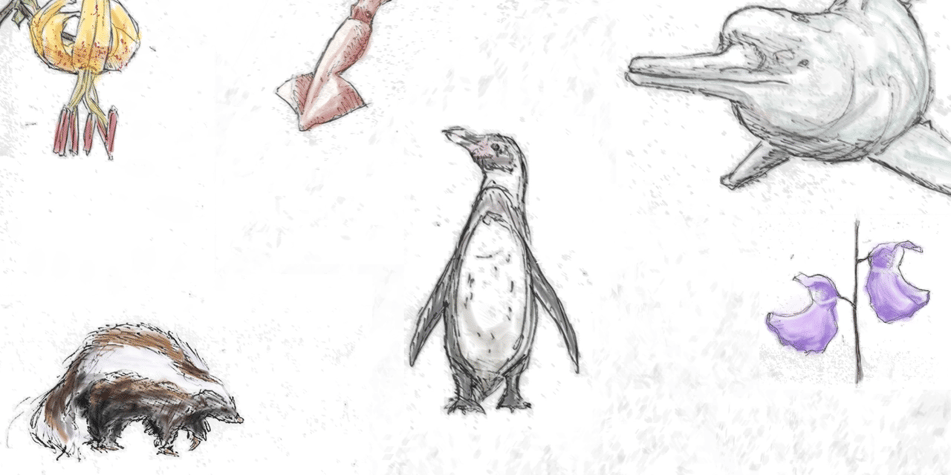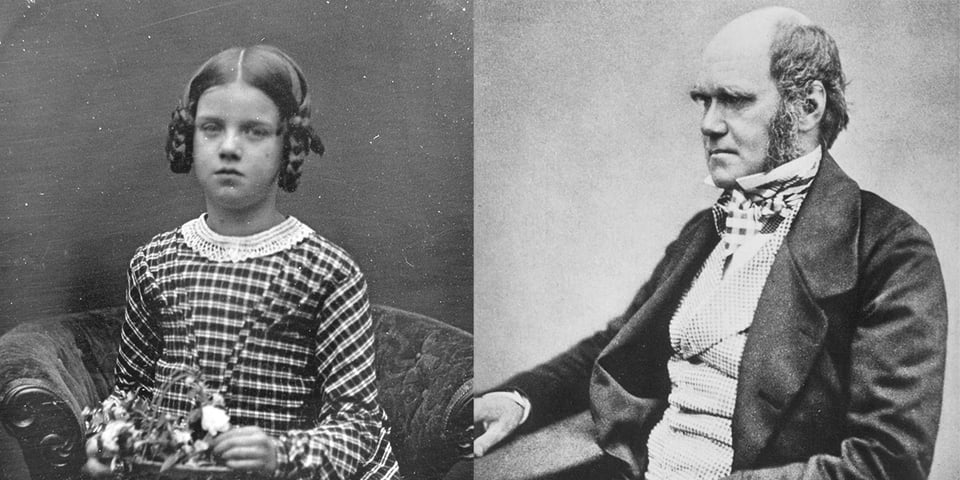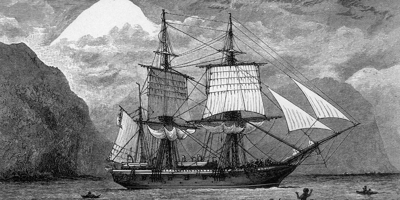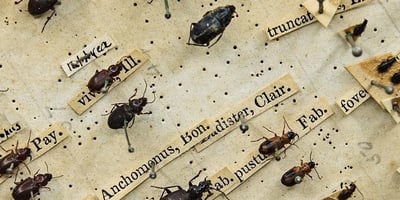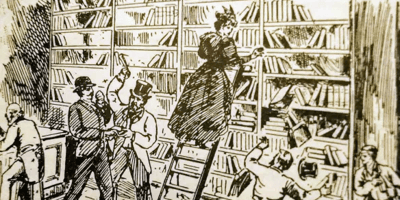The Story of Charles Darwin: Chapter II Read Chapter I here. A loud clap of thunder stirred him...
Darwin as an Author: The Interconnectedness of Life, Thought, and Darwin’s Skills
The Story of Charles Darwin: Chapter III
Read Chapter II here.
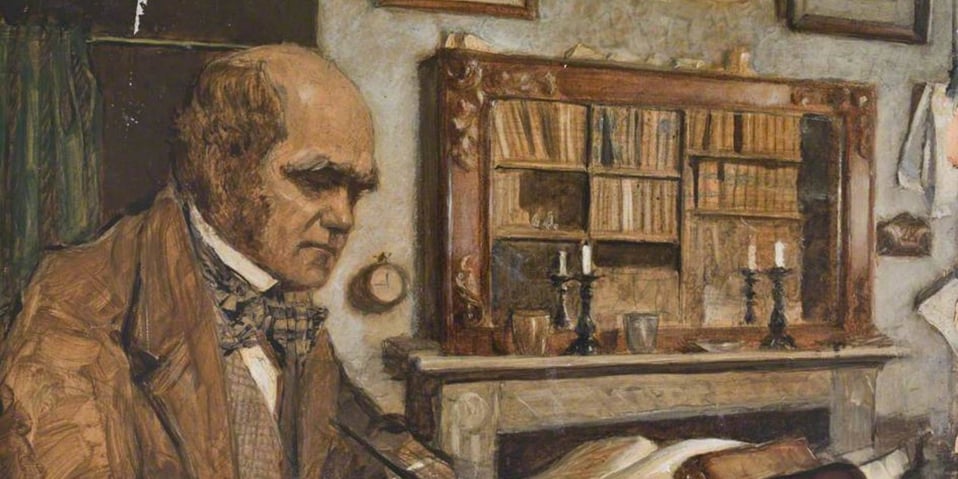
Hunched over a desk, brows furrowed, the man was poring over copious notes strewn across its surface. Occasionally, he would pick up a quill and resume his furious scrawling in a little notebook, muttering to himself under his breath. Although he usually implemented a calm and rational approach to note-taking, the gruelling events of the last week had stirred him into a frenzy.
His eyes scanned the pages rapidly, greedily absorbing all of its contents in the desperate hope they would start to make more sense-but in his current frame of mind, their complex arguments did not get much clearer. Sighing, he flung them aside, and gave up on trying to make sense of them. Although he had been trying his hardest to think about anything but the situation that had devolved in the last few days, flashes of these events flooded his mind.
He had missed his daughter’s funeral.
He lifted trembling hands to his head, as if trying to carry the weight of all of his thoughts. He was ashamed of the fact that he had not been able to see his second-born in the last few moments before she was lowered into her grave. But then again, Darwin was too overcome to be present, too helpless to console her sisters and brothers.
As he thought of her sweet smile, her musical laughter ringing in his ears, he put his pen to paper again; only this time, it was not as fanatic, not as hurried. Darwin’s tears, and the ink from his pen flowed through the night.
Interconnectedness of the natural world
The Beagle’s 5-year voyage left Darwin with a lot to ponder upon. Primarily, it highlighted the significance of the continuity of life, a concept that Darwin gave a lot of thought and importance to while formulating his own theories. It also challenged some conventional views that Darwin had been raised to believe.
Darwin’s views on the nature of life also drastically changed after the passing of his daughter Annie at the age of only 10, and the loss of two more children. As a result, his religious upbringing, and all that he had learned at university while studying to become a clergyman were shunned.
With all that he had observed, learned and experienced since, he could not bring himself to accept the tenets of ‘creationism’, a belief system that dictated that all life came from spontaneous creation- the doing of a divine ‘Creator’. Opposing ideas about how life came to be were also proposed by his own grandfather, who believed in the philosophy of natural creation; the emergence of life from actual physical matter. While Darwin denied the influence of such ideas upon his own thinking, he took to reading some of his grandfather’s volumes on the topic while in Edinburgh. Although his theories were not directly derived from these, their probable influence seems to be reflected in some of his work.
Natural sciences offered Darwin what religion and classical philosophy failed to. Principles of geology provided validation for his hypotheses regarding evolutionary biology. Geology indicated that natural landscapes gradually evolved and developed as a result of natural processes, and so too did the life they carried. Similarly, botany proved that plants diversified into several different species in a step-like manner.
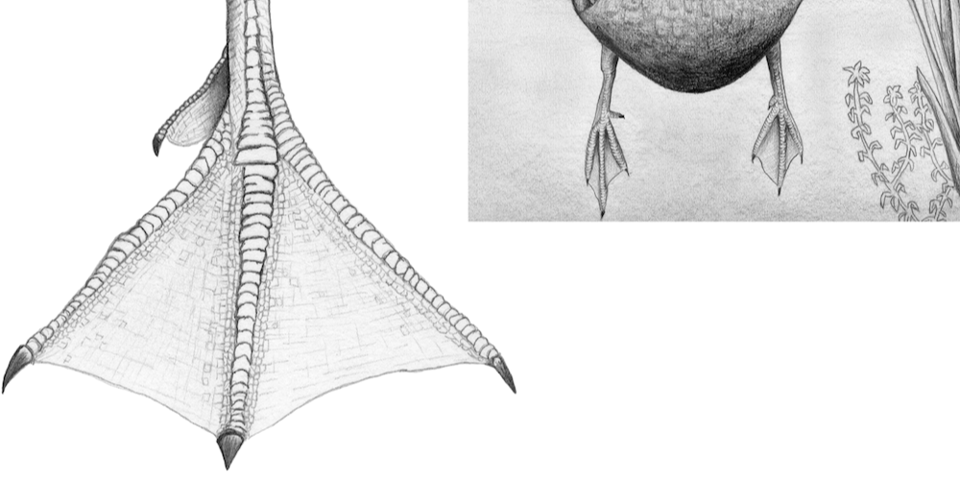
Theorising and testing
Constructing explanations for these observations took Darwin years, as it involved wading through a huge pool of literary resources. Darwin engaged in extensive research and journaling, and carried out experiments to confirm if these laws were followed by other living species. One of his famous experiments involved immersing dried duck’s feet in pond water, causing snail species that occupied such ponds to stick to them. This helped Darwin conclude that freshwater snails could emigrate to islands using birds as carriers. Once in new environments, those with traits designed to help them survive would proliferate, eventually exhibiting different features to their mainland relatives.
Contrary to popular belief, it was only during this time, much after the voyage, that Darwin had an epiphany about what he had witnessed in the Galapagos. He realised that distinct varieties of tortoises developed as a result of adaptation in isolation from each other. Additionally, what Darwin had initially thought to be different species of birds were actually all finches. They exhibited different physical characteristics due to distinct island environments that they occupied.
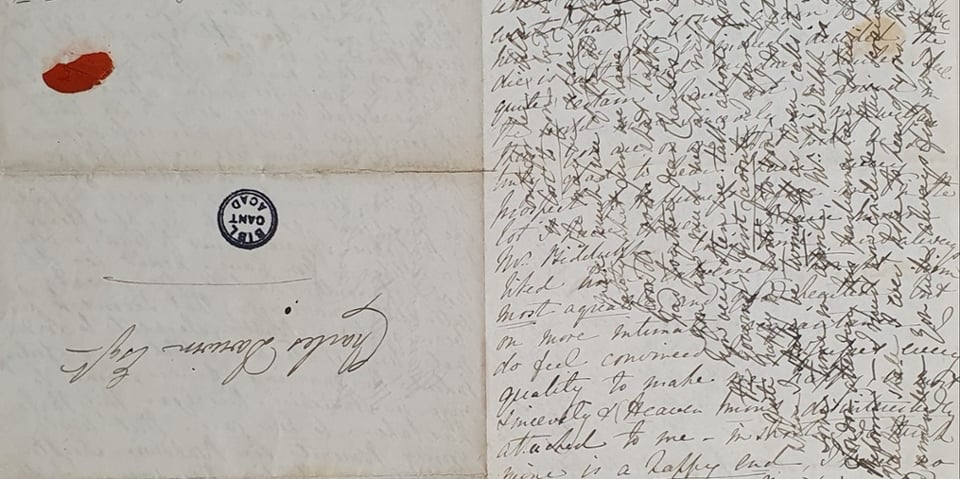
Love letters to Darwin from around the world
‘’I assure you no half famished wretch ever swallowed food more eagerly than I do letters’’ – [Charles Darwin, 24th October-24th November, 1832]
As he conducted experiments and formulated theories, Darwin simultaneously enjoyed attending to, and writing letters. A widespread network of correspondence from around the globe brought Darwin information about regional differences in plants, animals and people. Silkworms from India, sweet potatoes from China, date palms in Egypt and pigs from North America were among several examples that Darwin learned about in this manner. This wealth of information enabled him to compare differences in the behaviours and characteristics of different specimens.
In fact, Darwin looked forward to his letters so much so that on one occasion, a half an hour delay in receiving and sending these was met by considerable dismay. He wrote to the secretary of the Post Office, urging them to look into the matter.
One letter of particular importance made its way to Darwin by post in 1858. Another English naturalist by the name of Alfred Russell Wallace, driven by a passion similar to Darwin’s, had set out on trips to confirm his theories about evolution. He drafted a paper containing these postulations, and posted them to Darwin. Wallace’s paper not only offered further validation of Darwin’s own theories, but also prompted Darwin to involve Wallace in publishing these.
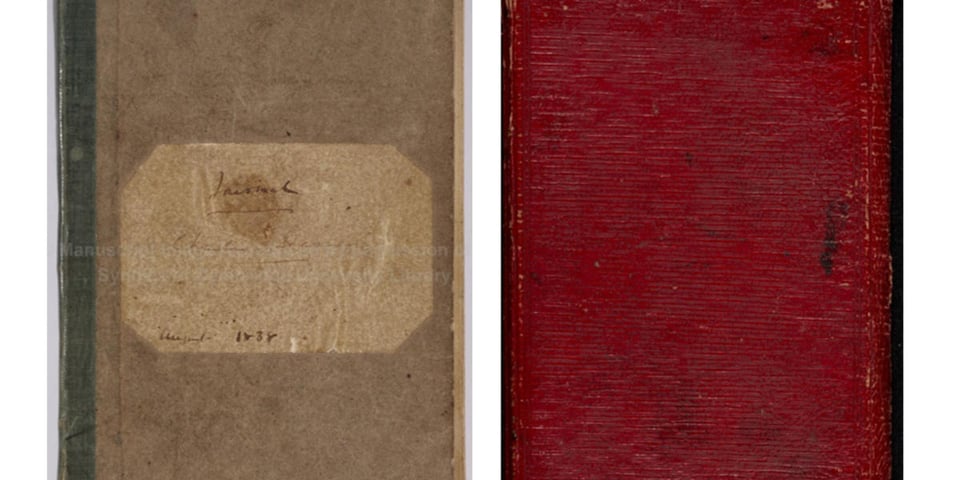
The Diaries of a Naturalist
Over the course of 5 very eventful years on the Beagle, Darwin’s skillset broadened to include penmanship. Given that he had assembled a sizeable collection of numerous animal and plant specimens, Darwin took to journaling and note-taking as an effective medium to organise these. To this end, he wrote a zoological diary and geological diary, a personal journal, 15 field notebooks, and several catalogues describing everything from stuffed animals and fossils to specimens in ‘spirits of wine’. Eager to ensure that there were detailed records of collective knowledge accumulated during their trip, Darwin also encouraged others on the ship to document their experiences and observations by making ‘very copious notes’.
Decision to Publish
Darwin’s motivation to write and publish papers after returning from the voyage originated from his desire to become a reputed geologist. However, the scope of his work expanded tremendously alongside the breadth of his experiments and discoveries, giving rise to many more ideas that were worthy of being shared with others.
In more than 20 years that he spent perfecting his theories, Darwin also experienced significant personal loss. His father, who had been a pivotal figure in shaping both his personal and academic life, passed away shortly after his return from the voyage. Darwin’s grief following this reportedly manifested as severe illness. The subsequent death of three children rattled him, only worsening his mental and physical state. Many have speculated and theorised that the impact of these events also interfered with his work as a naturalist. However, the loss of his loved ones also served as a nudge to publish his theories, an idea he had previously debated as he felt it would upset them- particularly his wife, who remained religious. It is unsurprising then, that as he came into his own as both a writer and a naturalist, he scripted what would one day be heralded as the most significant scientific work.
A faint call for him emanated from the room below, informing him that the table had been set for dinner. Being as immersed as he was in his current project, he barely registered it. There was a lot riding on his work, and his focus was absolutely essential. Dinner could wait.
He was close now. His eyes traced over the last page, ensuring he had included all relevant points from his abstracts and annotations. He even imagined that his beloved Annie was in the room with him, and had chimed in with a ‘Can you explain the papers to me?’. Giving into the pretence as he had done several times before, he began presenting his theories out loud to ensure they made sense- to an empty room, as it were. The encompassing silence, and the knowledge that it would never again be interrupted by her questions and laughter brought tears to his eyes, and for a second, there was a tremor in his voice - but Darwin continued sounding out the last few lines from his papers.
A loud, insistent rumble interrupted his reverie. Darwin ignored the beckoning of his stomach, and continued to read out loud. As his eyes swept the last sentence, Darwin allowed himself a small smile. He had done it. It was a bittersweet feeling; a sense of relief washed over him, but even this was diluted by the pain of everyone who could not be here to see it happen, and apprehension about the reactions it would elicit from a larger community. Ink-stained hands slowly lowered the pen into an empty slot, where dust had been collecting for months, having created a manuscript that would change the face of science forever.
Read Chapter IV here.
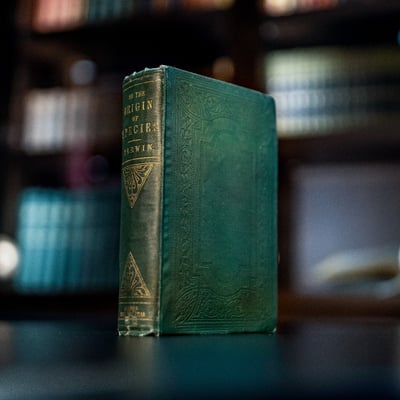
Showpiece has made it possible to own the book that changed the world. Find out more about our £275,000 first edition ‘On the Origin of Species’, and its incredible journey over 163 years. Available now from £50, find out more.
Darwin's many dilemmas
Here are a few of the resources we gathered to recreate an account of the years leading up to 'On the Origin of Species' being published:
https://www.darwinproject.ac.uk/learning/universities/getting-know-darwins-science/biogeography
https://academic.oup.com/bioscience/article/59/9/800/248702
https://blog.oup.com/2012/09/erasmus-darwin-who-invented-evolution/
https://jamestcosta.com/avian-airlift-darwins-duck-feet-experiment/
https://www.darwinproject.ac.uk/letter/?docId=letters/DCP-LETT-3359.xml
https://www.npr.org/2009/02/12/100597929/death-of-child-may-have-influenced-darwins-work
https://www.darwinproject.ac.uk/people/about-darwin/family-life/death-anne-elizabeth-darwin

